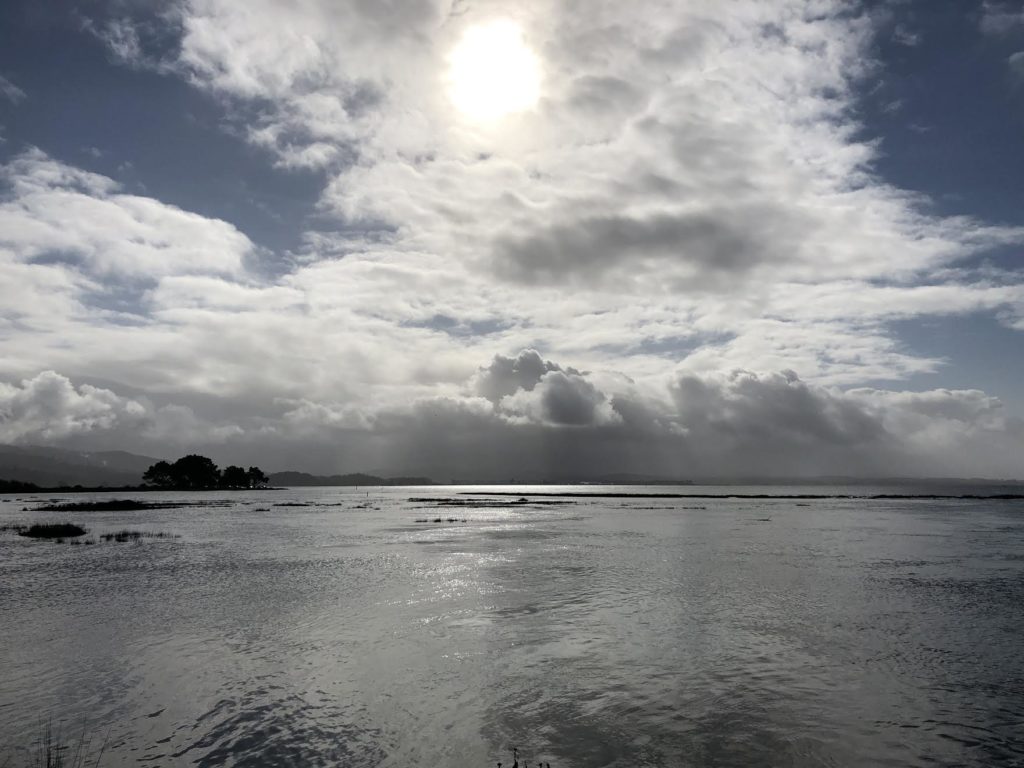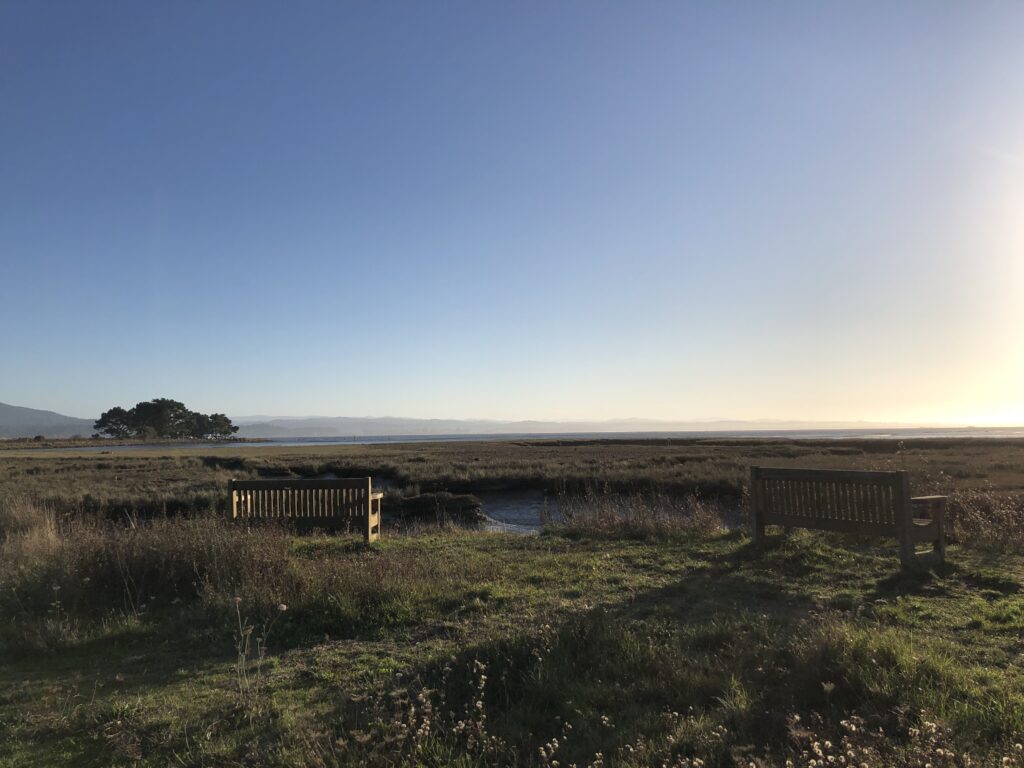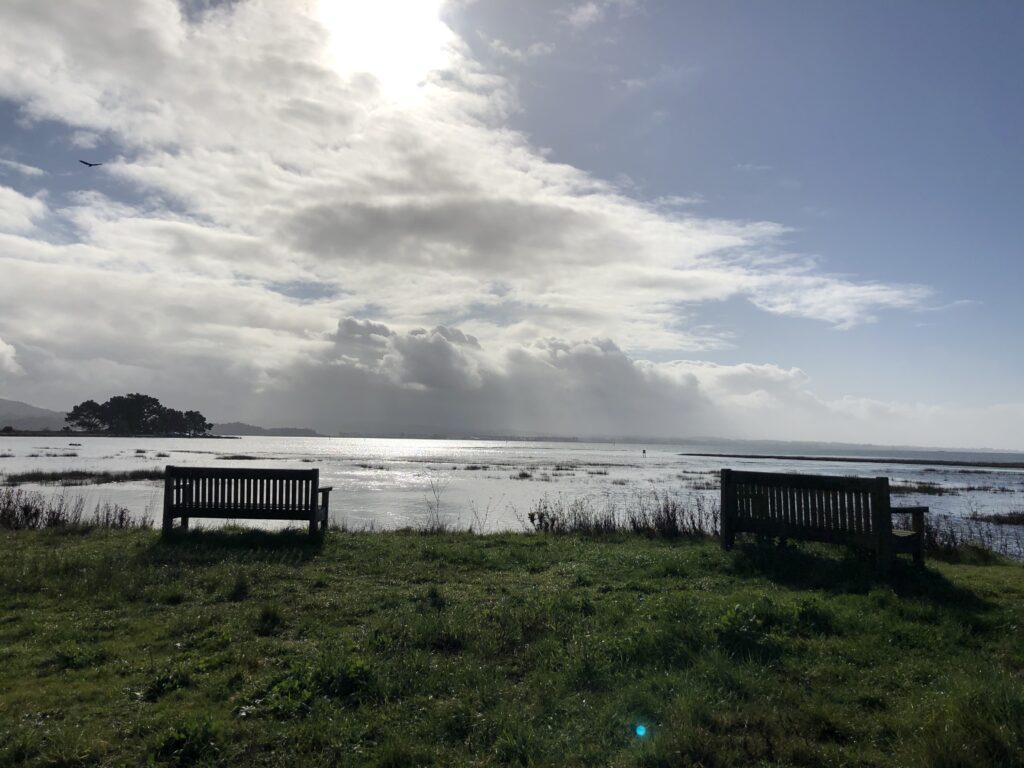Social Science Research to Help Advance Regional Coordination and Collaboration of Sea Level Rise Adaptation and Planning on Humboldt Bay

Graduate Student: Kristen Orth-Gordinier
Academic Advisor: Dr. Laurie Richmond
Timeline: 2019-2022
While the environmental dimensions of sea-level rise (SLR) on Humboldt Bay are fairly well understood, research is needed to better understand the social, political, and economic dimensions relevant to SLR planning and adaptation on Humboldt Bay. One important aspect of these dimensions is the regional coordination of plans and adaptation strategies. On Humboldt Bay, regional coordination is so important, and also so challenging, because the shoreline is governed by a patchwork of entities with different missions and jurisdictions. Coordination and collaboration become critical because tidal waters cross political boundaries.
The goal of this project was to conduct social science research that can advance regional coordination and collaboration surrounding SLR adaptation and planning on Humboldt Bay. Social science research on the human dimensions of SLR can help improve the processes of integrating stakeholder engagement with management needs of scientists and governing agencies, and inform more integrated approaches in other regions seeking climate solutions.
The project utilized a mixed-methods social science research approach of semi structured interviews (n=46), a survey (n=107), document review, and workshop presentation to gather information on people’s knowledge, attitudes, perceptions, and expectations of SLR planning and adaptation. Feedback from state and local sources were sought on experiences with past and current SLR planning efforts; goals and values related to SLR planning; and potential challenges and opportunities related to regional coordination relevant to SLR in Humboldt Bay.
The data indicated that coastal professionals on Humboldt Bay agreed that SLR is a near-term issue and acknowledged a need for regional coordination but did not have a clear direction for how to coordinate cross jurisdictional SLR issues. Respondents identified governance challenges to regional SLR planning and adaptation that included a lack of resources, institutional and philosophical differences, and competing priorities. Responses indicated that environmental regulation provided both challenges and opportunities. Behavioral-related challenges and opportunities noted by study participants included leadership, trust, and personal acceptance of SLR as a phenomenon. Responses also suggested that engagement of the public by coastal professionals has been minimal and will need improvement in order to achieve more equitable adaptation strategies. This study contributes to research on the social and policy dimensions of regional planning and coordination for SLR adaptation and helps to inform local, state, and federal government of the challenges faced by coastal California communities.


Project Updates and Results:
- Interviews: Between May – September 2020, Kristen completed 46 interviews of people with a nexus to SLR planning including local and state government, utility providers and asset managers, environmental regulatory organizations, landowners and consultants.
- Survey: This survey was designed in coordination with the County of Humboldt’s Regional SLR Coordination & Regulatory Framework Feasibility Study which started in late 2020 in order to directly inform their study. Between May – June 2021 we received 107 survey responses.
- Workshop: The SLRI teamed up with the Humboldt Bay Symposium to bring attendees one full day dedicated to the latest SLR science and local planning updates on September 30th.
- The final thesis was published in 2022.
- Kristen received a Patricia O. McConkey Outstanding Graduate Student Award in 2022 for her research.

This project is funded by California Sea Grant College Program Project, through NOAA’S National Sea Grant College Program, U.S. Dept. of Commerce.
